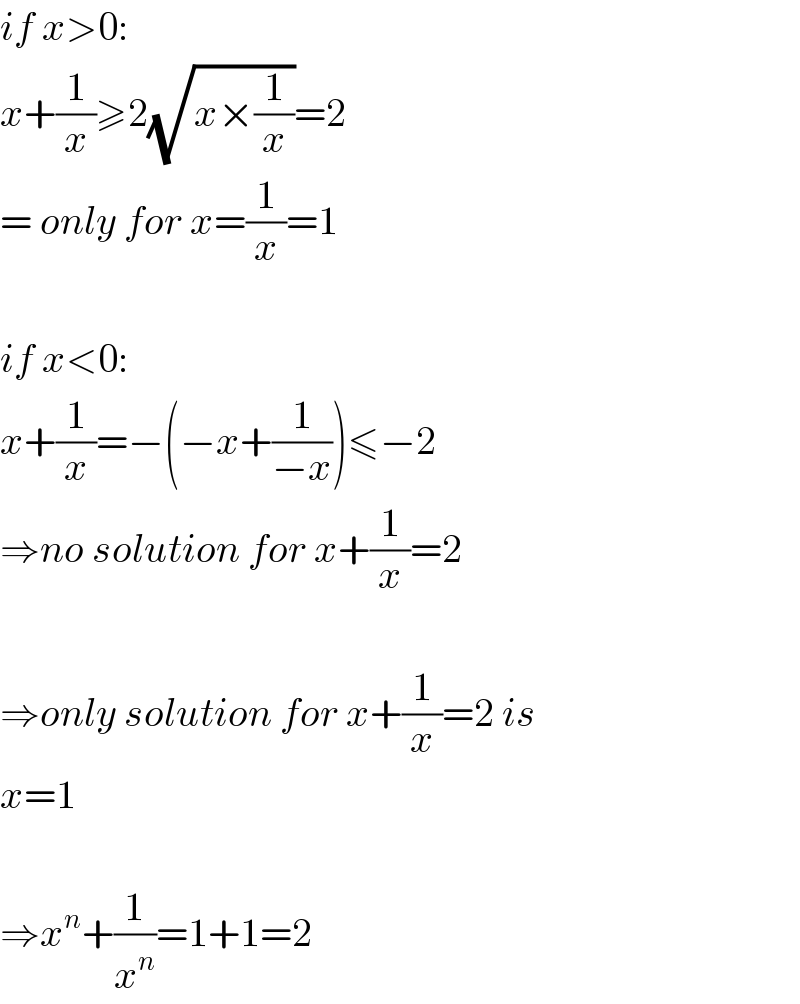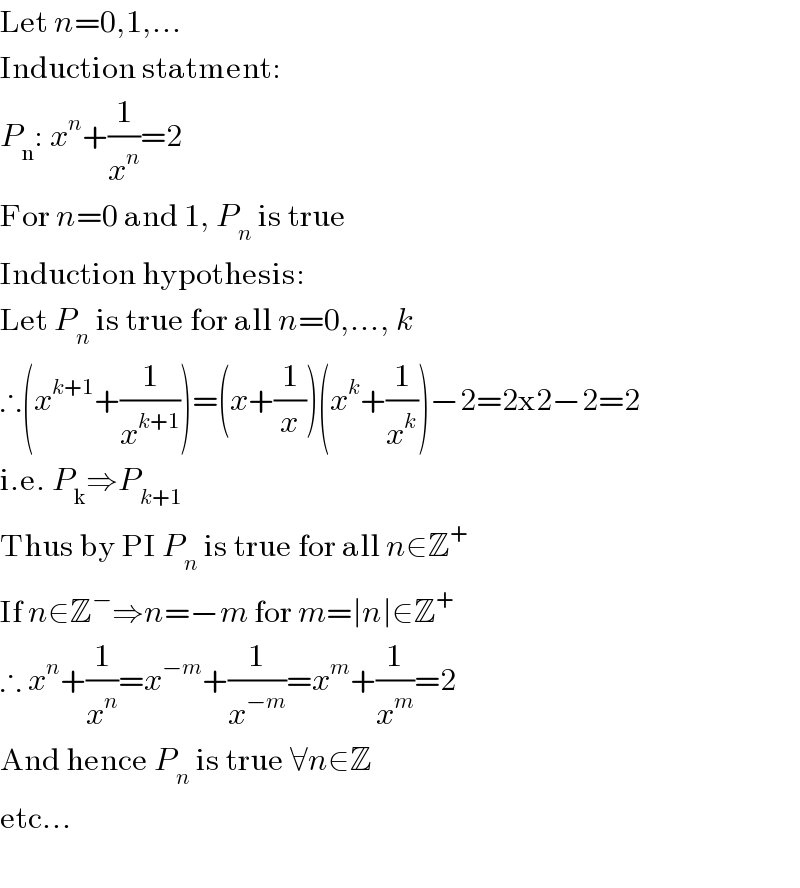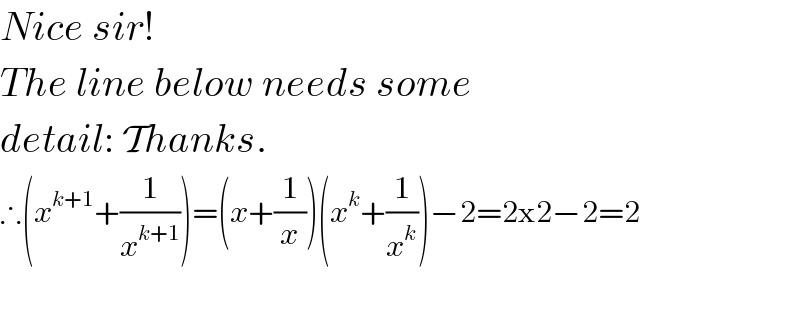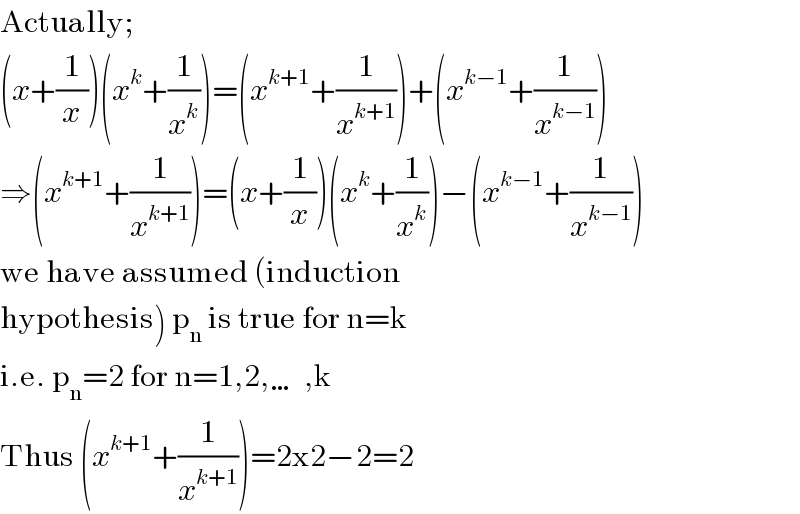
Question and Answers Forum
Question Number 108516 by Rasheed.Sindhi last updated on 17/Aug/20

Commented by mr W last updated on 17/Aug/20

Commented by Rasheed.Sindhi last updated on 17/Aug/20

Commented by udaythool last updated on 17/Aug/20

Commented by Rasheed.Sindhi last updated on 17/Aug/20

Commented by udaythool last updated on 17/Aug/20

Commented by Rasheed.Sindhi last updated on 18/Aug/20

Commented by udaythool last updated on 13/Sep/20

Answered by floor(10²Eta[1]) last updated on 17/Aug/20

Commented by Rasheed.Sindhi last updated on 17/Aug/20

Answered by mathmax by abdo last updated on 17/Aug/20

Commented by Rasheed.Sindhi last updated on 18/Aug/20

